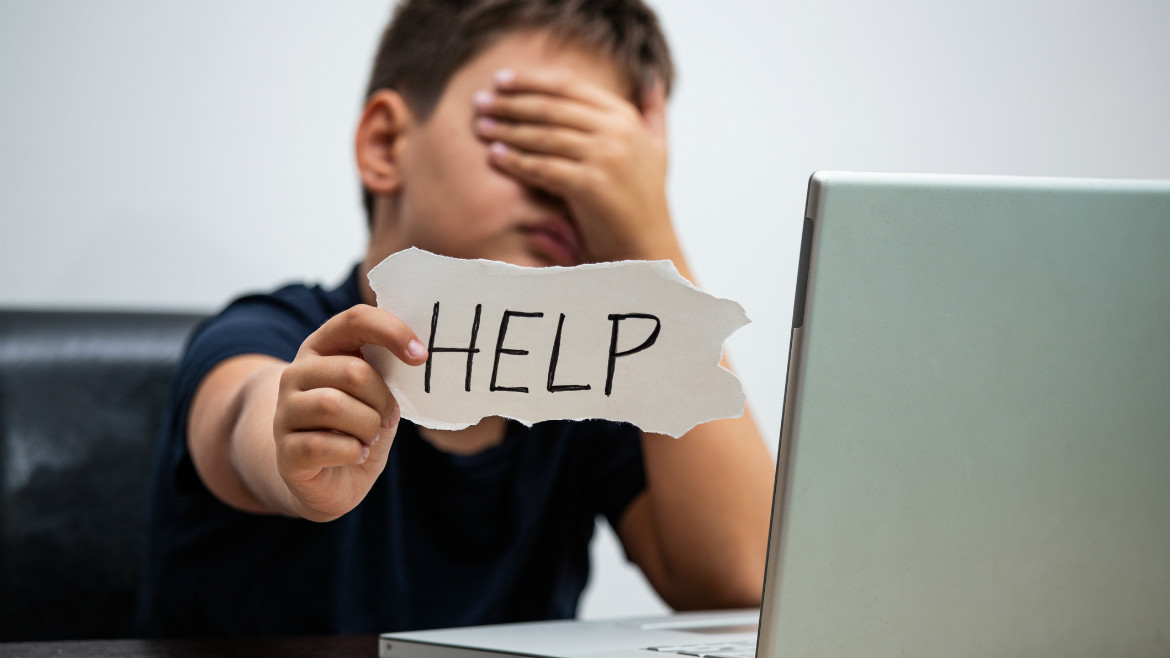
Children are growing up with the internet more often than ever. In the past, a child used to draw at the table while the rest of the family was dinning. Nowadays, it is conventional that a child is using his (own!) iPad to connect with the world wide web. Young people are more connected than ever. This could be potentially a good thing because they are easily linked to each other and they’ll get a lot of knowledge, but this can also be a huge problem because they’re always exposed to a constant stream of information and there’s always the threat of cyberbullying (Jones, n.d.).
The biggest threat of the internet for young people is cyberbullying. Cyberbullying is bullying with the use of digital technologies (UNICEF, n.d.). The effects of cyberbullying are disastrous, people can have the feeling of being attacked everywhere because it intrudes in their own house through their mobile phone, it seems like there’s no escape. In extreme cases, people don’t see another way out and take their own life.
It seems that the social media platforms do not care that much about cyberbullying because almost every platform has some kind of guidelines that doesn’t seem convincingly at all to tackle the problem of cyberbullying. More surprisingly, in the United States there’s even a law that prohibits platforms to get involved with the content on their platform (Milosevic, 2016).
Are there, thus, no solutions to this problem and do we have to accept that the next generation will have a lot of mental problems and are emotionally irritable? The answer is no, for the young people themselves, as for the parents there can be things done. It seems difficult, but for the young people it’s best to reach out for help. If you’re being bullied you can’t stop that yourself, even though there is always that feeling that you’d like to fix it on your own. The parents play a huge role in this. They should be very lucky if their child reaches out for help, and they must work with their child to tackle the problem by confronting the bully (Connectsafely, 2020).
The internet comes with a lot of new and interesting things and features but there are some flaws like cyberbullying amongst young people. This is a serious problem and the social media platforms are not trying to solve this problem. This is a challenge for the future, and this needs quite an effort from everyone that is involved in this problem.
References
Connectsafely (2020). Tips to help stop cyberbullying. https://www.connectsafely.org/tips-to-help-stop-cyberbullying/
Milosevic, T. (2016). Social media companies’ cyberbullying policies. International Journal of Communication, 10, 5164-5185. https://ijoc.org/index.php/ijoc/article/viewFile/5320/1818
Jones, S. (n.d.). What is the real-world impact of online hate speech on young people?. https://www.internetmatters.org/hub/question/what-is-the-real-world-impact-of-online-hate-speech-on-young-people/
UNICEF (n.d.). Cyberbullying: What is it and how do we stop it? https://www.unicef.org/end-violence/how-to-stop-cyberbullying

A very interesting read Sam, It is indeed a topic of concern for us in our generation, and cyberbullying is quite a complicated problem to resolve as its a novel issue that our parents never had to deal with. This phenomenon could only have worsened during the pandemic, as the usage of mobile platforms and computers has never been as high as during the last year. I do believe that parents should have a greater influence on their kids in relation to cyberbullying, but the problem also needs to be mediated by other instances such as the social media themselves.